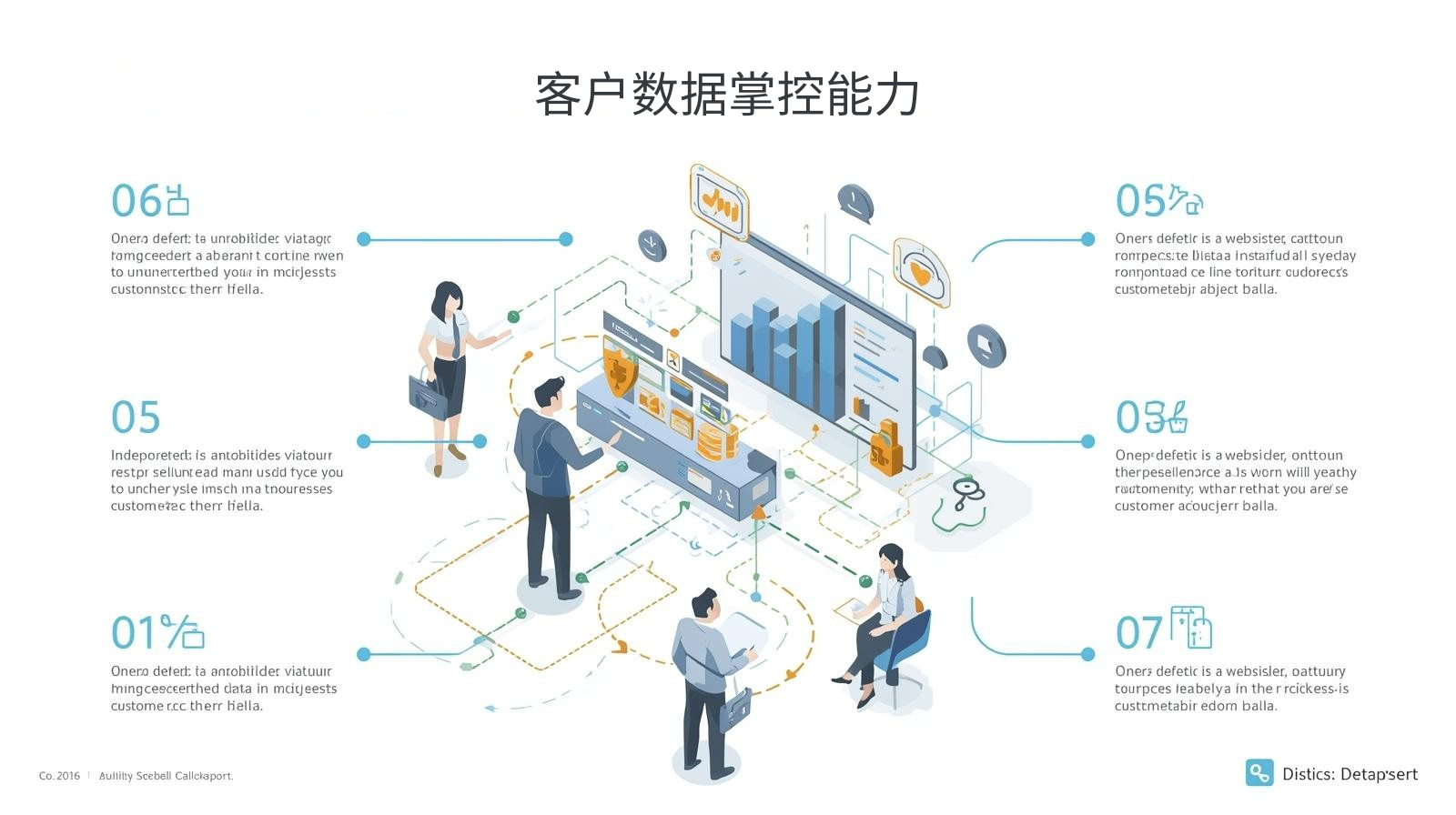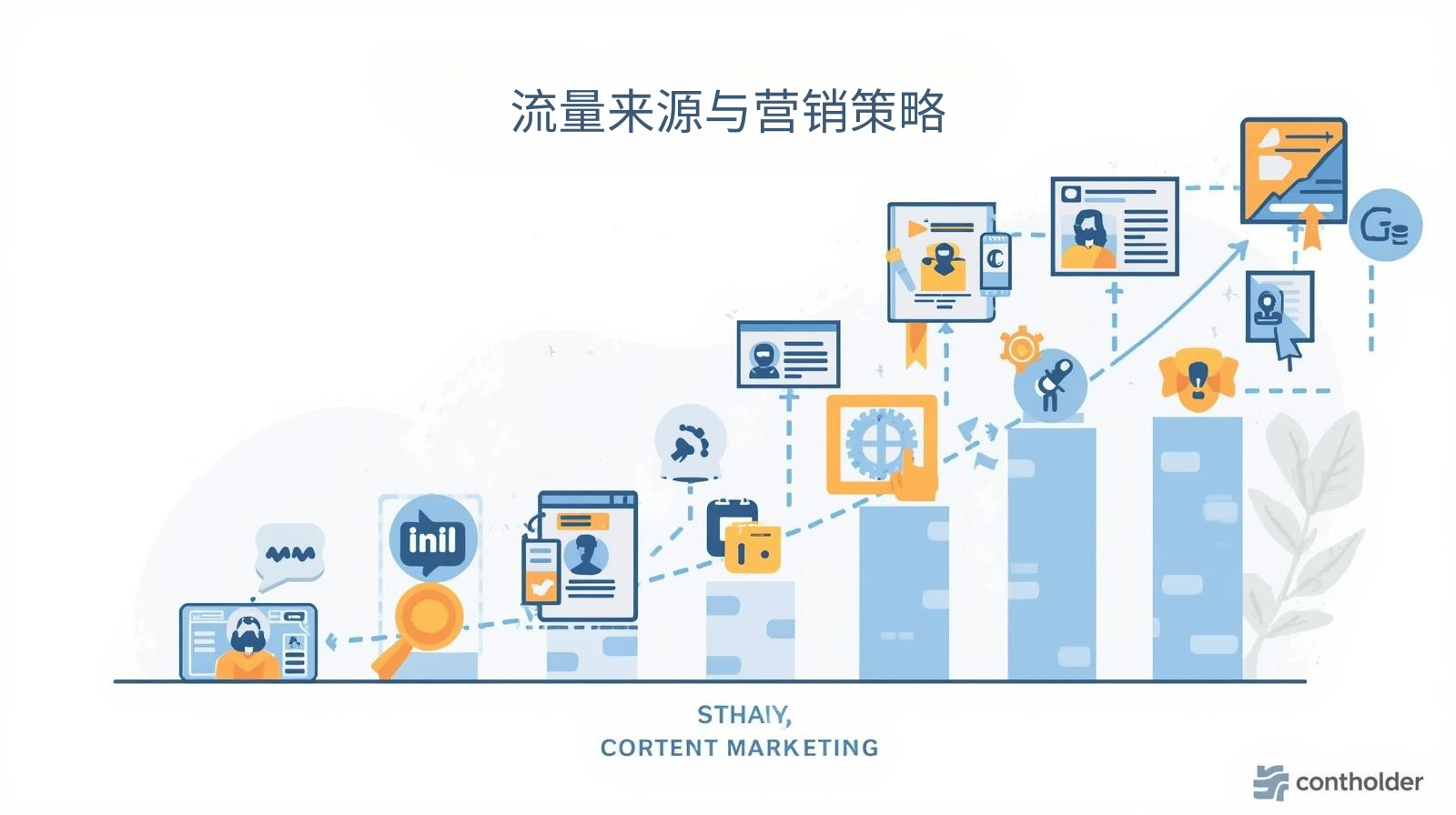The most significant advantage of an independent website is that the company has full control over the brand and website. From domain names, interface design to content layout, companies can customize according to their own brand strategy to ensure the consistency of brand image. In contrast, third-party platforms have fixed restrictions on display formats, rules and content, making it difficult to achieve differentiation.
China E-Commerce Research Center (ec.com.cn) pointed out that independent websites can establish long-term brand value for enterprises and enhance customer loyalty, while third-party platforms rely more on platform traffic, have high brand dependence, and are susceptible to rule adjustments. In terms of strategic positioning, enterprises should clarify whether they pursue long-term brand accumulation or short-term transaction volume increase, so as to choose the right model.
 Customer Data Control Capability
Customer Data Control Capability
Independent websites allow enterprises to collect customer data in full, including browsing behavior, purchasing preferences, contact information, etc., providing a data basis for precise marketing. Customer data on third-party platforms are usually limited and cannot be exported freely or analyzed in depth.
According to the data of the China Cross-border E-commerce Association (cbea.org.cn), companies that can independently control customer data have significantly higher repurchase rates and conversion rates than those that rely solely on third-party platforms. Through independent websites, enterprises can establish email marketing, social media reach and CRM systems to form a complete closed loop of customer management and achieve continuous growth.
Sales Model and Profit Space
Independent sites provide enterprises with direct sales models without paying high commissions or transaction fees to the platform, and have greater profit margins. At the same time, enterprises can flexibly design promotional strategies, membership systems and pricing strategies.
China Internet Association (isc.org.cn) studies show that the average gross profit margin of independent website companies is 15%-25% higher than that of companies selling on third-party platforms. Although third-party platforms can bring stable traffic, their cost structure and rule restrictions will compress profits, and due to platform promotion methods, it is difficult to achieve personalized marketing.
 Trade Source and Marketing Strategy
Trade Source and Marketing Strategy
Independent sites need to divert traffic through multiple channels such as SEO optimization, social media operations, advertising delivery and content marketing, which helps enterprises establish their own traffic pools and reduce dependence on external platforms. The traffic of third-party platforms mainly depends on platform rules and traffic allocation. Once the platform policy is adjusted, the number of visits and orders may be affected.
According to the research of Aliresearch (aliresearch.com), after establishing its own traffic channels, independent website companies have low long-term marketing costs and high user loyalty, making them more likely to form long-term stable returns. Third-party platforms can bring transactions in the short term, but they have strong long-term dependence and companies have limited autonomy in marketing strategies.
Long-term development and risk control
Independent sites are not only sales tools, but also core assets for corporate brand digital and international layout. Through independent websites, enterprises can perform cross-border payments, multi-language and multi-currency management, global logistics information integration and other operations to avoid the risks of dependence on a single platform. When third-party platforms adjust rules, account freezes or intensify competition, companies are prone to risk of business disruption and brand damage.
To sum up, there are essential differences between independent websites and third-party platforms in terms of brand autonomy, customer data control, profit margin, traffic acquisition and long-term development. Enterprises should make choices based on their own strategic goals, resource capabilities and business models. With professional website building platforms such as Pinshop independent website building platform, enterprises can quickly build independent websites that meet brand positioning, taking into account marketing, data management and multilingual cross-border operation, and achieving long-term and sustainable foreign trade growth.
Related article recommendations: Multi-language independent website strategy: a balance between localization and internationalization






